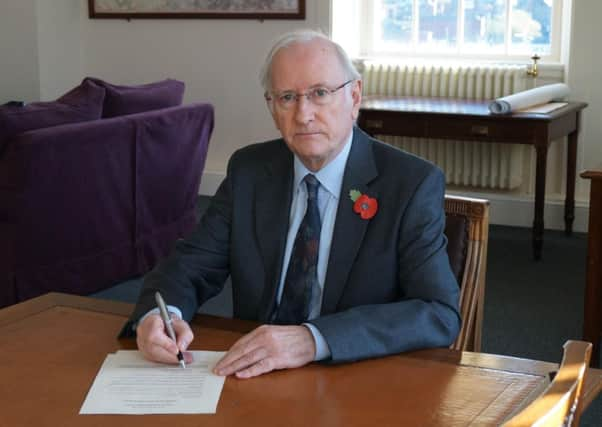Craig Paterson: Crime tsars may be on borrowed time


Yet, there is much more to the role than the shadow of Rotherham, or that of Hillsborough and Orgreave. Dr Billings has some clear and immediate priorities; building up the morale of a demoralised force, reassuring the public that South Yorkshire Police is in safe hands, and demonstrating the independence and integrity required for a transformational leadership role.
At a more practical level there are concerns about South Yorkshire’s detection rates and the policing of domestic abuse which was highlighted as unacceptable in a Her Majesty’s Inspectorate of Constabulary report earlier this year.
Advertisement
Hide AdAdvertisement
Hide AdAdded to this, there is the lower profile, but arguably more important, task of commissioning local services. This is where the PCC earns their crust.
Although the police dominate discussions about crime, there are a range of disparate agencies from the voluntary, charitable and local government sectors that support public safety and keep crime levels low.
The quality of work provided by these organisations is largely dependent upon the amount of money they receive from the PCC. This is also the area where the PCC sends out clear messages about their approach to reducing crime. Support for drug and alcohol services, ensuring community cohesion and rehousing those who have been in prison may not be headline-grabbing policies but these are examples of the range of key issues that have a genuine impact upon crime levels.
The police and crime commissioner may offer visible leadership to the public but it is in these areas that their day-to-day impact will be felt. This is where PCCs need an experienced team. It is the role of the police and crime panel to make sure that the PCC grasps these nuts and bolts aspects of the job immediately to deliver the day-to-day management of crime and disorder issues.
Advertisement
Hide AdAdvertisement
Hide AdPublic confidence in police and crime commissioners remains uncertain. Politicising the police may not be the answer to the democratic deficit of police authorities, but at least the public now know who they should be annoyed with.
Admirers of the British police have looked on with incredulity as political figures have meddled with a police service renowned for its independence.
Yet, traditionalists often miss the extent to which policing feels like it is being delivered in a multimedia goldfish bowl when scandal strikes. The powers held by police officers demand democratic accountability.
Alan Billings’ looks likely to have a limited tenure in his new role. George Osborne announced yesterday that PCCs would be replaced by elected mayors in northern cities and David Cameron has done little to associate himself with the police and crime commissioner role. Ed Miliband is expected to actively oppose the policy during the general election. Indeed, Dr Billings himself, in a victory speech moments after his win was confirmed, said the “dismal turnout” sent a message to David Cameron that his post “should be abolished and the money used to fund frontline policing instead”.
Advertisement
Hide AdAdvertisement
Hide AdIt is a perfectly fair question for members of the public to ask “what difference have PCCs made”? Police and crime panels tend to look like the discarded local police authorities they were meant to replace and attempts to refresh the demographic of people involved in police decision-making has largely failed.
Thirty-six out of the first tranche of police and crime commissioners were male and the candidates for South Yorkshire were all drawn from the world of white, middle-aged men that has historically influenced and directed policing policy in the region. It may take time to secure an evolution in thinking about who polices the police.
A re-think of the role of invisible police authorities was required, so a simple reversal of policy is not the correct solution. The police service remains the national body that takes people’s liberty away and uses force where required to keep the peace. They should be subjected to democratic scrutiny. It just seems to be the case that people do not want to vote for it.
Dr Craig Paterson is a principal lecturer in law and criminology at Sheffield Hallam University